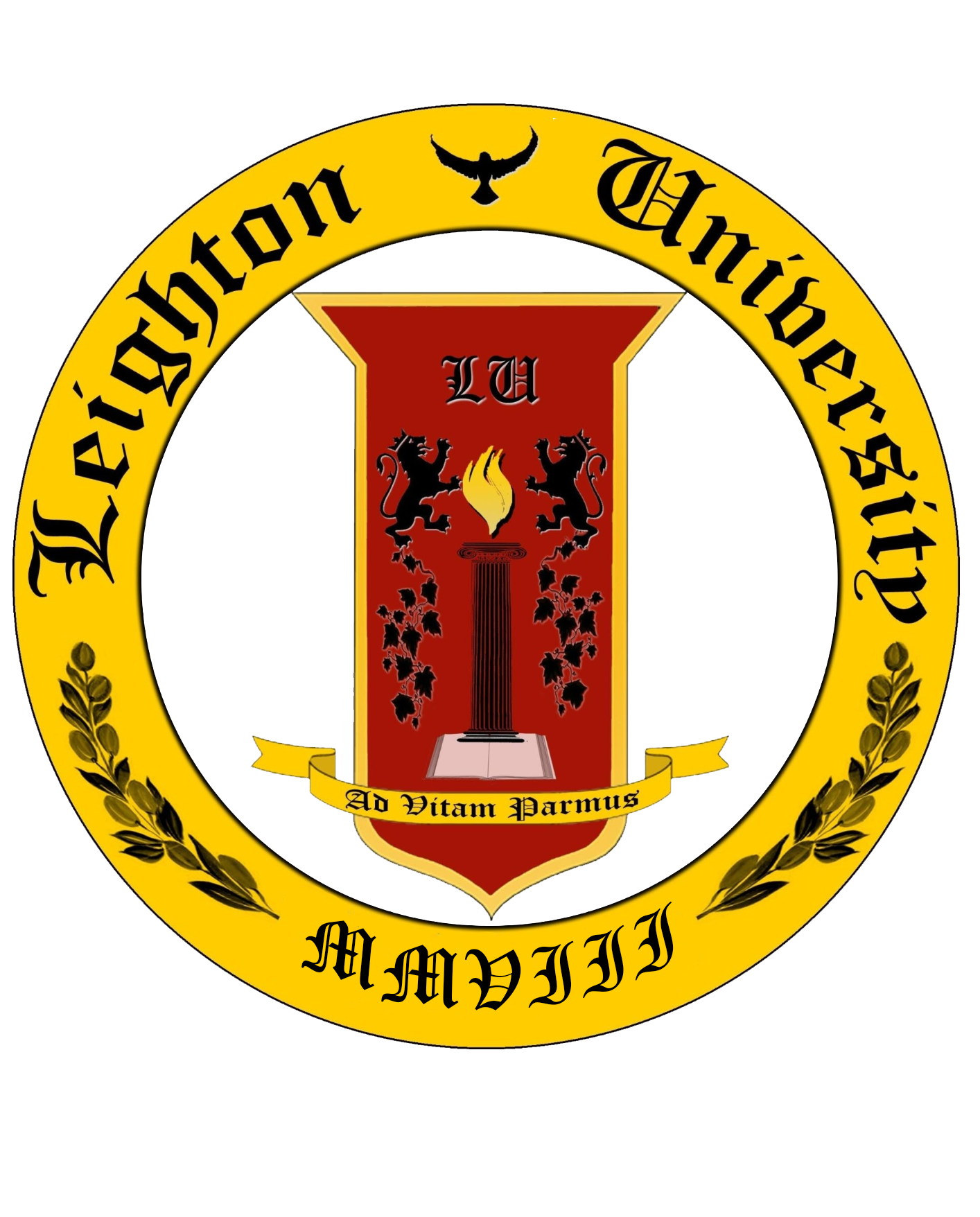Questions? 662-280-5444
RELATED LINKS
Introduction
About Leighton
Student Records
Office of the Registrar
Grade Change
Pass/Fail Grade Policy
Academic Forgiveness Policy
Credit Hour Policy
Repeated Course Policy
Repeated Course Fee
Repeated Course
Procedure for Securing Student Records
Add/Swap Courses
Financial Matters
Student Financial Account
Delinquent Tuition Account
Refund Policy
Drop for Non-Payment
Tuition/Fees & Billing
Payment Plans
Payments by Guarantor
Cancellation Policy
Refund Policy
Refund Payments
FERPA
Student Development Services
Disability Services Accommodation
Disability Services
Advisement
Academic Advisors
Non-Degree Students
Transient Students
Transfer Credit
Transfer Students
Student Honor Code
Section 504 Compliance
Section 504 Coordinator
Complaint Procedures
Investigation Procedures
Review of Academic Records
Withdrawal from a Course
Academic Withdrawal
Human Resource
Academic Division
Course Numbering
Credit/No-Credit Courses
Incomplete Grade
Deans List
General Education Program
Academic Standards
Academic Integrity
Violation of Academic Integrity
Technology & Communications
Violations of Academic Integrity
Violations of principles and practices of academic integrity fall into two subcategories: (1) plagiarism and misuse of sources and (2) cheating.
Plagiarism and Misuse of Sources
Plagiarism is the use without proper attribution of someone else’s words, ideas, or other work as if it were one’s own. Failure to properly indicate and acknowledge the work of others can lead a reader, listener, or viewer to think that information, research, ideas, words, images, data, artistic and creative elements, or other work are the student’s own efforts, when they are not. Plagiarism significantly departs from accepted standards in the academic community and misleads others into thinking the work is the student’s own.
Misuse of sources, like plagiarism, reflects failure to properly credit the work of others but involves errors, mistakes, incomplete or inadequate attempts and other errors in the citation, quotation, and attribution that would not seriously mislead others into thinking the work is the student’s own.
Plagiarism and misuse of sources carry different consequences, as described in Leighton University Academic Integrity Procedures.
The responsibility to give credit for material that would not qualify as common knowledge applies to almost all types of assignments and situations, not just papers, and not only to finished work but also submitted drafts. Work in which students must acknowledge sources and the contributions of others includes but is not limited to draft and final versions of the following:
- Talks and other oral presentations
- Visual aids, presentation slides, or other media tools
- Websites, web pages, webcasts, and other multimedia work
- Artistic, musical, and other creative work
- Lab reports
- Problem sets
- Thesis chapters, papers, proposals, literature reviews, abstracts, annotated bibliographies, and other writing
- Exams, including in-class and take-home exams.
Cheating
Cheating involves violating recognized norms for academic inquiry or specific norms established by faculty for particular assignments or using other methods, including technology, to gain unearned academic advantage. Examples of cheating include but are not limited to, the following:
- Unauthorized collaboration
- Using materials not permitted during an exam, when writing a paper, or in completing other assignments
- Receiving assistance beyond what is permitted
- Manufacturing or falsifying data
- Submitting the same work to satisfy the requirements of two different courses without getting permission from the instructor of the second course or permission from both instructors if the same work is submitted in two courses during a single semester
- Knowingly providing assistance of any kind to another person who is attempting to cheat or plagiarize.
